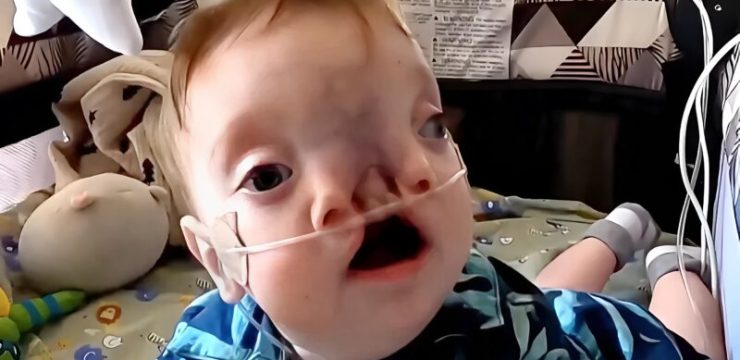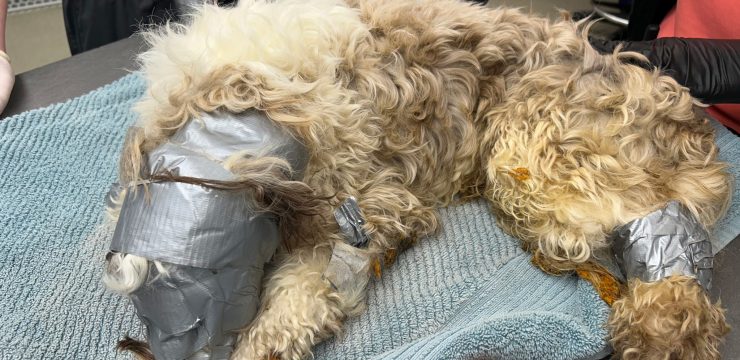She smiled so wide her cheeks could have split, her tiny hands wrapped carefully around her newborn sister as if she had rehearsed it in her dreams. The yellow blanket clashed with her bright red suspenders, but she didn’t care. From my hospital bed, exhausted, stitched, and floating on a haze of hormones and relief, I watched my firstborn, Lina, gaze at the baby she had waited four years to meet. Every night during my pregnancy, she kissed my belly and every morning she’d ask if her sister had arrived yet.

Now Elsie was here, and I thought we were fine. Lina leaned in close to the baby’s nose and whispered, “Now I have someone to keep the secrets with.” I blinked. “Secrets?” She nodded, still beaming. “Like the ones I don’t tell Dad. It’s okay—she won’t say either.” I forced a laugh and told her babies couldn’t talk yet, asking what kind of secrets she meant, but she only kissed her sister’s forehead, hopped down, and asked for a cookie. I brushed it off as childish imagination; Lina was creative, making up dragons named Toffee and saying clouds were God’s pillows. Two months later, on a rainy Tuesday, I was breastfeeding Elsie on the sofa when I overheard Lina, her back to me, telling her dolls, “We don’t tell Daddy. That’s the rule.” When I asked why, she spun around too fast and insisted it was just doll talk before slipping off to her room.
That night I told James, my husband, who laughed it off as typical four-year-old behavior. But a week later, I caught Lina in the backyard telling Elsie, “If Daddy asks, we say the monster only comes when he’s not home.” My blood froze. When I pressed her, she claimed it was pretend, describing a tall, faceless shadow that sometimes banged on windows or hid in the kitchen. “Elsie sees it too,” she added. I barely slept that night. James worked late two nights a week, and I found myself replaying her words. I started asking subtle questions about noises or games they played when I wasn’t there, but her answers veered between silly and evasive. I installed a hallway baby monitor with night vision.
Three nights later, I watched on the monitor as Lina stood silently outside our bedroom for nearly ten minutes before turning back to her room. The next morning, she denied leaving her bed. Searching her room that night, I found a crude crayon drawing under her pillow: a tall, faceless black figure standing behind our kitchen table, next to two small figures in red and yellow. Beneath it, in shaky letters, were the words, “Don’t let him take her.” I showed James, who went pale, and we agreed to book a child psychologist. We never made it—three days later, Lina disappeared. One moment she was dancing with her stuffed duck in the hallway; fifteen minutes later, she was gone.
The doors were locked, the gate shut. We tore through the house, called the police, and joined the neighborhood search. Four hours later, James found her in the shed, clutching Elsie. When I asked why, she said, “The monster said he was coming. He told me I could give him Elsie instead.” I asked if someone had come into the house; she shook her head. “He doesn’t need doors.” At the psychologist’s office, Lina spoke for two hours. The therapist said she was bright and imaginative but showed signs of anxiety and possible trauma.
When asked gently if the monster was someone she knew, Lina hesitated before saying, “He smells like Daddy. He doesn’t look like him, but sometimes he sounds like him when Dad yells at the TV or slams the door. He scares me—only when you’re away.” That night I confronted James. He broke down, admitting that during my pregnancy he had started drinking and sometimes lost his temper when I wasn’t home, yelling at Lina or grabbing her too hard. She had turned her fear into the image of a monster. James left that night to begin treatment, as did Lina. Over time, things slowly healed. She stopped whispering to Elsie, stopped drawing faceless figures, and began laughing again. James stayed sober and saw her during supervised visits. Months later, as I tucked her in, she told me softly, “I don’t need to keep secrets anymore.” In that moment, my heart both broke and healed. Sometimes the monsters aren’t under the bed—they’re people we love. And while people can change, no child should ever grow up in a home full of secrets.





